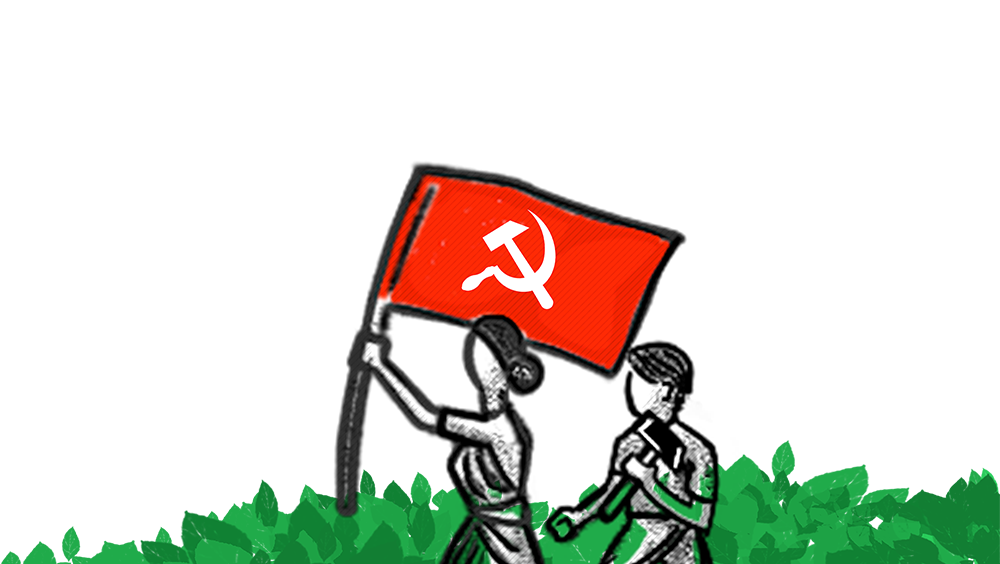On closer scrutiny, Mahila Samvaad appears less about dialogue and more about top-down messaging. Rolled out through JEEViKA’s bureaucratic machinery, the campaign seems curated from above rather than organically led from below. Senior officials participate, but the structure leaves little room for real dissent. Many women report being silenced or discouraged from raising uncomfortable questions. Far from being a space of empowerment, this initiative risks becoming a state-scripted spectacle of participation. While officials focus on information dissemination in favour of the government on schemes for women like Kanya Utthan Yojana, free bicycles, and JEEViKA loans—programs that have existed for years—ground realities remain unchanged. Violence, debt, child marriage, and school dropouts continue unabated. According to Bihar's Economic Survey, crimes against women rose by 13% between 2021 and 2022. The situation demands accountability, not announcements.
A People's Tribunal: Mahila Adalat
In response to the government’s orchestrated campaign, the All India Progressive Women’s Association (AIPWA) launched Mahila Adalat, a grassroots public hearing initiative that puts real women’s voices at the centre.
Between May 13 and 19, Mahila Adalat (Women’s Court) programs were organized in several locations across Bihar, including Gaya, Arwal, and various areas of Patna city such as Kadamkuan, CT, and Gulzarbagh, as well as rural Patna in Paliganj, Bihta, Masaurhi, and Punpun. The initiative also took place in Bhojpur (Agiaon, Jagdishpur, Ara, Sahar, Garhani, and Piro), Vaishali (Lalganj and Hajipur), Muzaffarpur (Musahri), and Siwan (Raghunathpur), among other places — with more events scheduled in the coming days. AIPWA General Secretary participated in the Mahila Adalat programs held in Lalganj, Musahri, Pali, and Bihta.
Women came forward not to receive state messaging but to speak, demand, and resist. The issues raised paint a far bleaker picture than the one projected in Mahila Samvaad.
Ground Realities the Government Won’t Broadcast
Exploitation through JEEViKA:
Women reported that JEEViKA self-help groups, instead of fostering empowerment, now function as tools of extraction. The government collects funds from these women for basic operations, yet offers no job security.
Underpaid Scheme Workers:
ASHAs, Anganwadi workers, Mamta workers, and cooks earn a pittance—Rs. 1650 per month in some cases—while playing essential roles in public welfare. These women are rising up against the Nitish-Modi government's exploitative policies.
Microfinance Harassment:
To run their homes, many women are forced to take loans. But microfinance companies are harassing them for repayments. Families are living in fear, some even fleeing their homes. When they can’t pay instalments, their Aadhaar cards are seized, blocking access to government schemes. While the government waives loans for big businesses, poor women are left to suffer. The demand for loan waivers is now turning into a major movement.
Prepaid Electricity Meters:
Women decried the imposition of prepaid meters, calling them coercive and unjust. Women strongly protested the coercive policies of the electricity department, especially the installation of prepaid electricity meters, which they described as a heavy burden on the poor. They demanded immediate removal of these meters, citing harassment by the authorities.
Education in Crisis:
“Beti Bachao, Beti Padhao” is a hollow slogan in a state where colleges lack teachers, fees are rising, and scholarships are delayed. Skill programs fail to translate into jobs, leaving educated girls stranded.
Basic Needs Denied:
Malnourishment, inaccessible healthcare, and the collapse of local health infrastructure plague rural Bihar. Women are demanding MGNREGA jobs, restored health services, Rs. 1500 in pension, and a dignity allowance of Rs. 2500.
Unfulfilled Promises to Dalit Women:
Land promised for housing before the 2020 elections remains undelivered. Landless Dalit women feel betrayed.
Unaffordable LPG:
A once-celebrated shift to LPG cooking has become a burden. The central government once promoted LPG as a cleaner cooking alternative to relieve women from cooking over firewood, skyrocketing LPG prices—reaching Rs. 1,000 per cylinder—have placed them beyond the reach of the poor.
Rising Gender-Based Violence:
Women and girls in Bihar still face deep social inequality and structural violence especially those from Scheduled Castes, backward classes, and economically weaker communities. Sexual violence, including rape and gang rape, has increased sharply. According to the NCRB 2022 report, crimes against women in Bihar rose by 20% in recent years. Government services meant to protect women—like the Sakhi One Stop Centres, 181 helpline, and women’s police stations—are hard to access, especially in rural areas. Often, the accused are politically or socially powerful, and victims face social pressure and mental harassment instead of justice. Girls face rising threats of sexual harassment, assault, blackmail, and even honour killings.
Beyond Slogans: A Call for Political Consciousness
While Mahila Samvaad claims to “listen,” Mahila Adalat proves that women aren’t waiting to be heard, they’re demanding to be answered. The government’s polished optics are no substitute for real accountability. AIPWA’s initiative shows what genuine political participation can look like: organized, fearless, and rooted in lived experiences. The contrast is stark where the state uses loudspeakers, women use the power of testimony. As Bihar approaches another critical election, women must not be reduced to passive recipients of state messaging. They are not props in a Rs. 300 crore performance. They are citizens demanding justice, dignity, and structural change not a Rs. 300 crore performance!!





